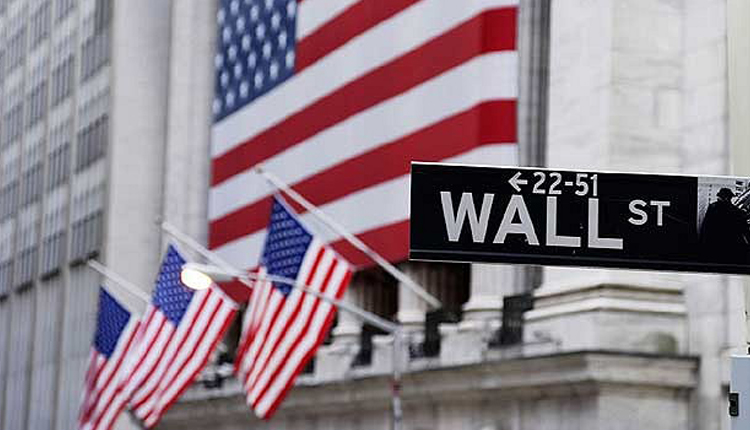Wall Street rose on Wednesday as bank shares rallied on higher interest rates, while Boeing inched up.
The Dow Jones industrial average closed 346.41 points higher at 25,146.39 with Boeing rising 3.2 percent and contributing the most to the gains.
J.P Morgan and Goldman Sachs were also among the biggest contributors of gains. The Dow also closed above 25,000 for the first time since mid-March.
The S&P 500 gained 0.9 percent to finish at 2,772.35 as financials rose 1.9 percent. The benchmark ten-year Treasury note yield rose to 2.98 percent on Wednesday, following yields in Europe after the European Central Bank hinted at winding down its asset-purchasing program.
Shares of J.P. Morgan Chase, Bank of America and Morgan Stanley all rose more than 2 percent, while Goldman Sachs advanced 1.7 percent. The SPDR S&P Bank exchange-traded fund (KBE) gained 2.1 percent, marking its best day since March 26.
Meanwhile, the Nasdaq composite closed 0.7 percent higher at 7,689.24 and hit a record high as tech regained earlier losses. But tech’s gains were capped after the Financial Times reported the European Union was set to unveil a negative finding from a probe on Google. Shares of Google-parent Alphabet closed 0.4 percent lower on the news.
Tech has been on fire recently, rising more than 6 percent over the past month to a record high. The best-performing tech names over that time include chipmakers Advanced Micro Devices, Micron Technology and Microchip Technology. PayPal, Electronic Arts and Facebook are also up sharply over the past month.
“It’s interesting because, over the past few years, you’ve seen tech perform as a defensive sector,” said Quincy Krosby, chief market strategist at Prudential Financial. “What we’re seeing are concerns about global growth as overseas data have, overall, suggested moderation outside of the U.S.”
Krosby also said concerns over a trade war between the U.S. and key partners have also helped push tech higher recently.
Mexico, one of the biggest U.S. trade partners, unveiled tariffs on Tuesday that target U.S. goods such as pork, cheese and steel. This comes after the Trump administration last week slapped tariffs on steel and aluminum imports from the European Union, Mexico, and Canada.
Canada’s Chrystia Freeland said the country plans to slap dollar-for-dollar tariffs on the U.S. Meanwhile, the EU threatened to retaliate with tariffs of its own.
“At least for now, instead of getting trade deals done with the stick of steel and aluminum tariffs, we have instead invited tariffs back on us,” wrote Peter Boockvar, chief investment officer at Bleakley Advisory Group, in a note. “I thought the point of our tariffs on them was to get them to negotiate with us but instead it’s just inviting more tariffs. Let’s hope this stays under control.”
Source: CNBC
